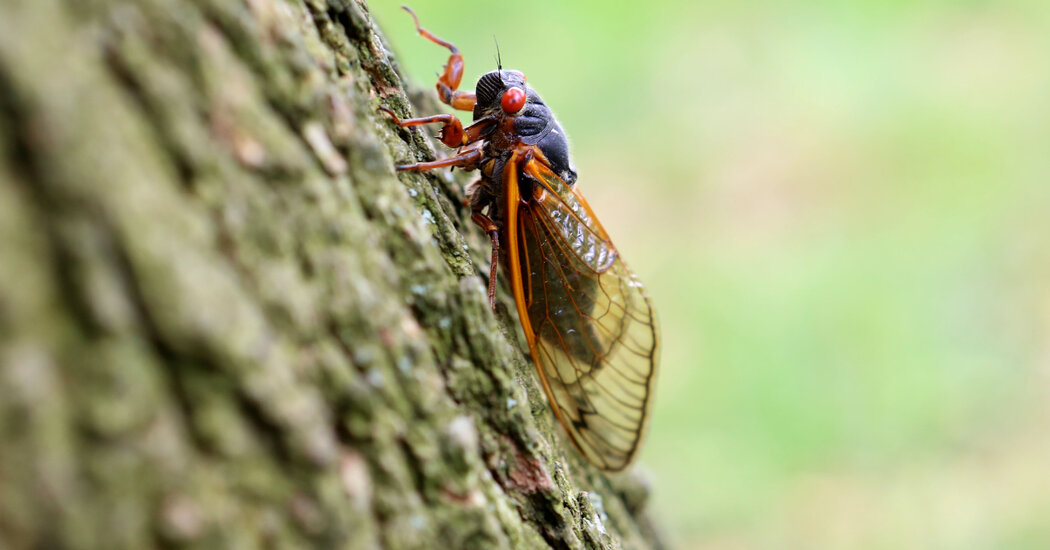Brood XIX and Brood XIII will both emerge this spring. The last time these bugs showed up at the same time in the United States, Thomas Jefferson was president.
The cicadas are coming — and if you’re in the Midwest or the Southeast, they will be more plentiful than ever. Or at least since the Louisiana Purchase.
This spring, for the first time since 1803, two cicada groups known as Brood XIX, or the Great Southern Brood, and Brood XIII, or the Northern Illinois Brood, are set to appear at the same time, in what is known as a dual emergence.
The last time the Northern Illinois Brood’s 17-year cycle aligned with the Great Southern Brood’s 13-year period, Thomas Jefferson was president. After this spring, it’ll be another 221 years before the broods, which are geographically adjacent, appear together again.
“Nobody alive today will see it happen again,” said Floyd W. Shockley, an entomologist and collections manager at the Smithsonian National Museum of Natural History. “That’s really rather humbling.”



If a comet is the brightest comet in 10,000 years but can only be seen in the southern hemisphere, “the world hasn’t seen a comet this bright in 10,000 years” would still be appropriate even if you personally don’t live in the southern hemisphere and can’t see it with your own eyes.
Ok, that was exactly my point earlier. I thought that since some countries experience annual cicadas, the U.S. experiencing both periodical cycles simultaneously would be similar to what other countries experience every year. However, I was wrong. It turns out that the numbers for periodical cicadas are much, much greater than those for the annual types. So, indeed, just their sheer numbers will make them a spectacular event. Sorry for the misunderstanding. TIL
No worries.